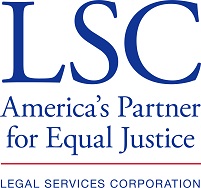Eviction, what can happen to me?
How does an eviction affect me after I move?
Once an eviction action is filed, it is a public record that can be expunged under limited circumstances (for more information on eviction expungements, please go to our expungement page). Landlords often do background checks when someone fills out an application to be a tenant. Some landlords will not rent to people against whom an eviction action has been filed, even when the defendant wins or the case is dropped.
If you are evicted, the judge may issue a money judgment against you. A money judgment is a court order stating that you owe the landlord money. This judgment can often include attorney’s fees, court costs, late fees, interest, and treble damages. Court judgments affect your credit rating. Also, if the landlord gets a money judgment, he can garnish your wages or get a court order to take some of your property to pay off the judgment. The landlord can also require that you appear in court every so often to answer questions about your income and assets. If you get such a notice to appear (for a “supplemental proceeding”), you must go. If you do not go, a warrant for your arrest may be issued by the court. This warrant is issued because you did not appear when ordered, not because you cannot pay.
Will an eviction affect my housing subsidy?
Yes. If you are evicted, you will likely lose your subsidy. This means if you have a Section 8 voucher, you will probably lose it and will not be able to get Section 8 assistance at your new apartment. If you are evicted from a rent-subsidized property, where the subsidy is connected to the apartment, you may not be able to receive rental assistance again for several years.
What can I do to save my housing subsidy?
The best way to save your housing subsidy is to avoid an eviction in the first place. If you have a Section 8 voucher and are behind on rent or having issues with the landlord, see if you can work something out with your landlord to avoid an eviction. Filing an eviction costs the landlord money and many landlords also hire an attorney who charges fees for handling an eviction. Because of this some landlords will agree to waive some or all of the rent that is owed in exchange for not having to file an eviction lawsuit if you agree to move out. To take your Section 8 voucher to another apartment, your landlord will have to sign several releases for the housing authority. This includes a release stating you do not owe any rent. If the landlord will not sign that release, you can use our form. Just fill out the form and give it to the housing authority.
If you live in public housing or a rent-subsidized property, you should request an administrative hearing as soon as you get the first eviction notice. You may be able to keep your subsidy by going to the administrative hearing. An administrative hearing is usually just a meeting where you explain your situation to the hearing officer and try to work something out.
If you come to an agreement to move out, get this agreement in writing. We have a mutual lease termination available for you to use, it is located at the bottom of this webpage. It may also be best to get your landlord to agree to give you a neutral reference in the future. This means that the landlord will promise not to say anything negative about you should a future landlord contact him. Landlords do not have to agree to this and even when they do it is very difficult to enforce.

